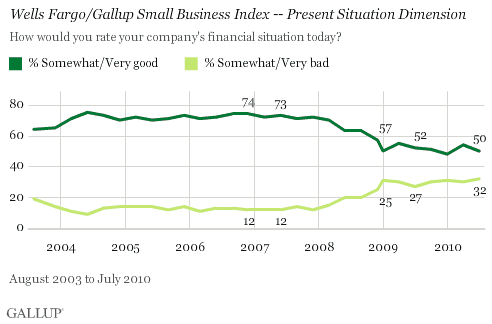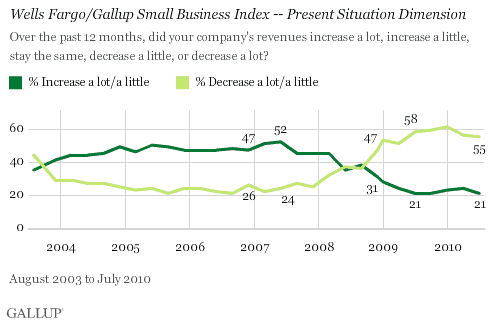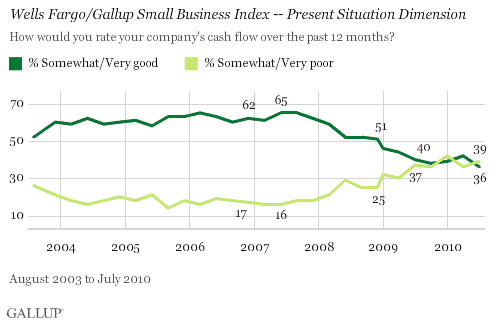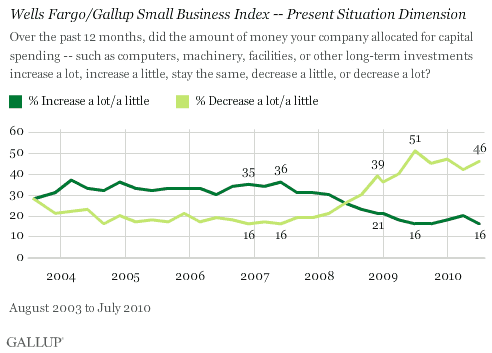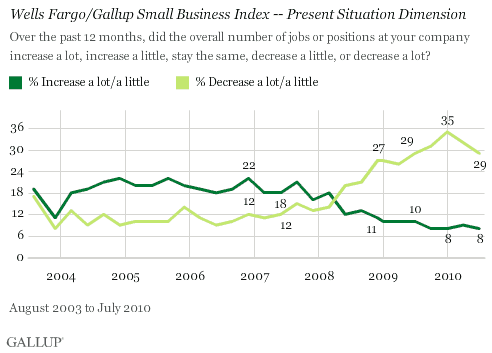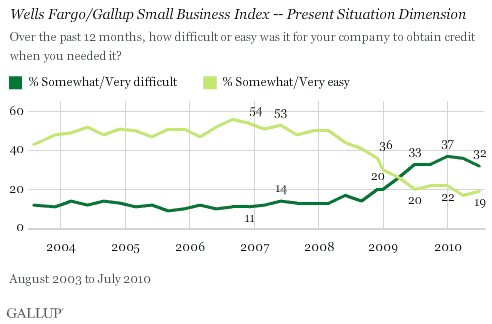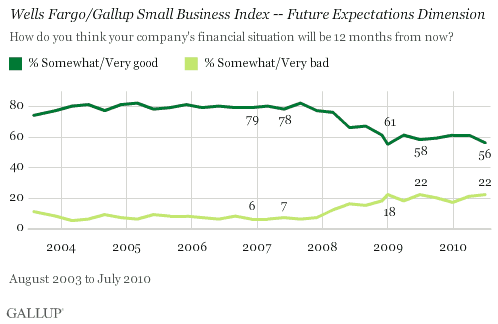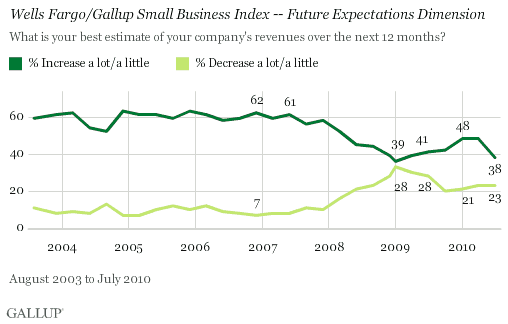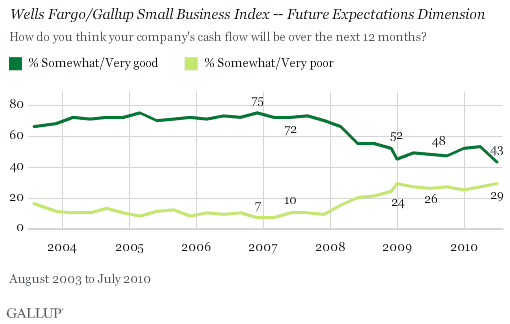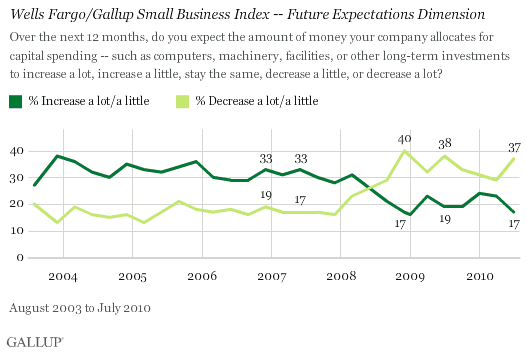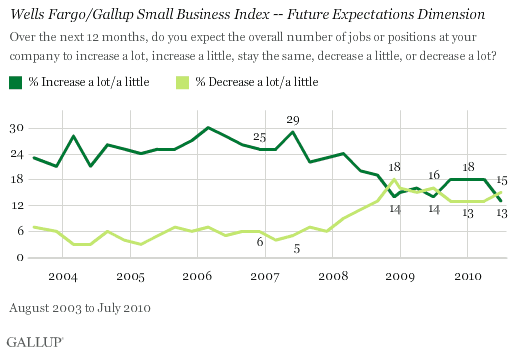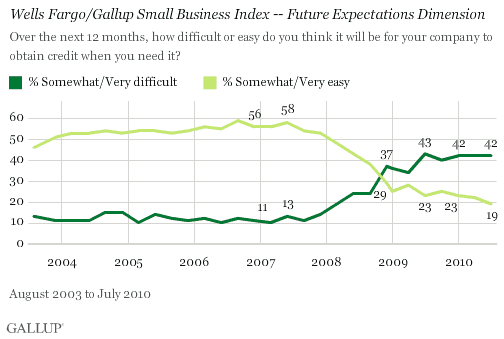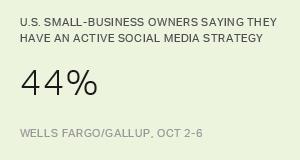PRINCETON, NJ -- The Wells Fargo/Gallup Small Business Index -- which measures small-business owners' perceptions of six measures of their current operating environment and future expectations -- fell 17 points to -28 in July. This is its lowest level since the index's inception in August 2003. (See full index results on page 2.)
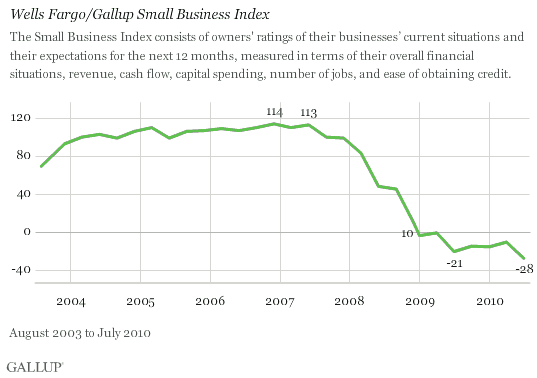
Record Pessimism in Future Expectations
Most of the decline in the overall index came in the Future Expectations Dimension of the index, which measures small-business owners' expectations for their companies' revenues, cash flows, capital spending, number of new jobs, and ease of obtaining credit. The dimension fell 13 points in July to -2 -- the first time in the index's history that future expectations of small-business owners have turned negative, suggesting owners have become slightly pessimistic as a group about their operating environment in the next 12 months.
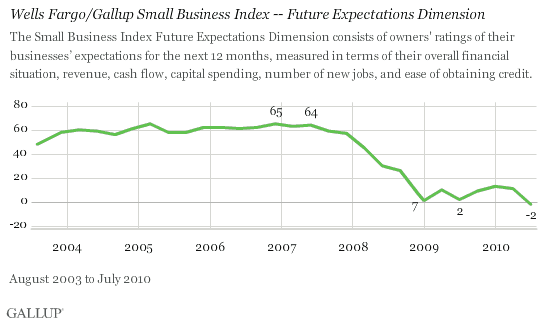
Small-business owners' future expectations for their operating environment show significant declines in their revenue, cash-flow, capital-spending, and hiring expectations for the next 12 months. Forty-two percent expect it to be "somewhat" or "very difficult" to obtain credit -- no improvement from April and January. One in five (22%) small-business owners expect their companies' financial situations a year from now to be "somewhat" or "very bad."
More Negativity About Present Situation
The Present Situation Dimension of the index declined by a more moderate four points to -26 in July -- the second-lowest rating for this dimension that hit its low of -29 in January 2010.
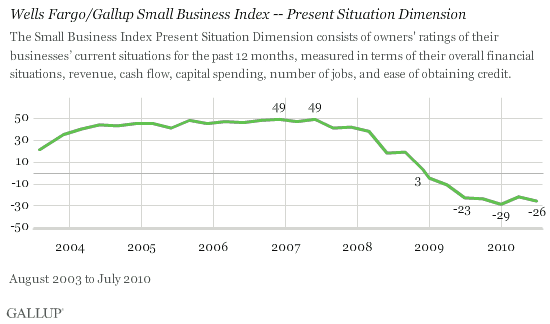
When evaluating the past 12 months, small-business owners suggest there has been a modest further decline in their current operating environment, driven largely by a significant decline in the percentage of companies having good cash flows. (See full index results on page 2.)
Implications
The sharp deterioration in small-business owners' economic perceptions and expectations in July is fully consistent with Gallup's tracking of a steady decline in consumer confidence over the past three months. So is the weaker-than-expected growth of the U.S. economy during the second quarter, as well as the general expectation of a further slowing of the economy during the second half of 2010.
The Wells Fargo/Gallup Small Business Index seems to be something of a precursor of future economy activity. It peaked at the end of 2006; matched that peak once more in June 2007; consistently declined thereafter as the recession deepened, before bottoming out in mid-2009; and finally, improved modestly until its July 2010 decline.
Small-business owners are the embodiment of America's entrepreneurial and optimistic spirit. As a result, their increasing concerns about their companies' future operating environment do not bode well for the economy in the months ahead. Nor do small-business owners' intentions to reduce capital spending and hiring: 17% of owners plan to increase capital spending in the next 12 months -- down significantly from 23% in April -- and 13% expect jobs at their companies to increase, while 15% expect them to decrease over the year ahead.
Big-firm earnings and global growth may drive profits on Wall Street, but small business is the major source of U.S. job creation. And most small-business owners are unlikely to hire as long as they are becoming increasingly uncertain about the revenues and cash flows of their companies in the months ahead.
Results for the total data set are based on telephone interviews conducted July 6-12, 2010, with a random sample of 604 small-business owners.
For results based on the total sample of small-business owners, one can say with 95% confidence that the maximum margin of sampling error is ±4 percentage points.
In addition to sampling error, question wording and practical difficulties in conducting surveys can introduce error or bias into the findings of public opinion polls.
For more details on Gallup's polling methodology, visit www.gallup.com.
